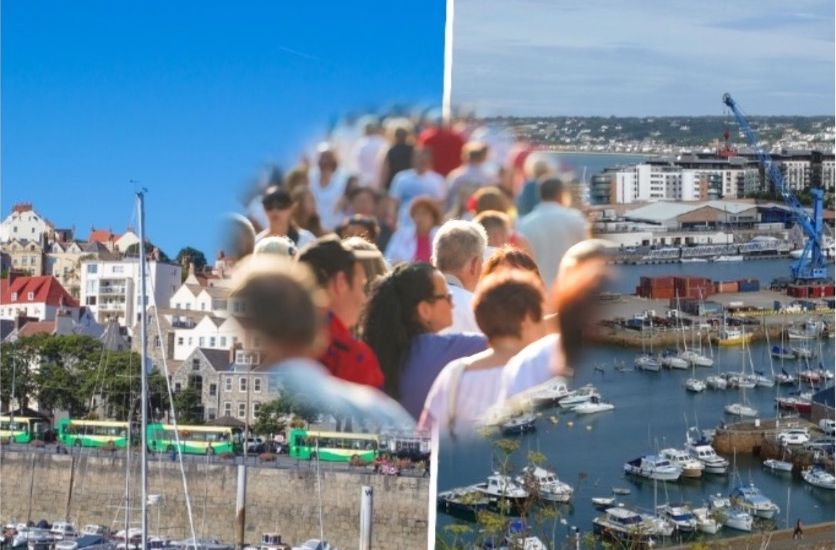

Jersey’s population is on track to become nearly three times the size of Guernsey’s, if current trends continue, according to the latest official figures.
Although that won’t happen for around 40 years, it demonstrates that the two islands are experiencing very different population stories, with Jersey’s appearing to be growing steadily, whilst Guernsey’s is flatlining.
According to Jersey’s latest resident population estimate for 2017, the biggest Channel Island’s population grew by 1,300 people last year, in stark contrast to Guernsey’s which saw a decrease of 107.
Last week, the States of Guernsey released its first ever population projections, which predict that the island’s population will peak at 64,000 in 2034 before falling below 60,000 by 2065.

Pictured: Guernsey's population is predicted to peak in 2034 before falling below 60,000 in 2065 (States of Guernsey Data and Analysis).
Comparing these projections with the most recent figures for Jersey (published in October 2016) indicates that by 2065, Jersey’s population will reach 166,000 people - almost triple the size that of Guernsey in the same year.
This long-term projection is based on an annual net migration of 1,000, which is the average rate over the last four years. However, if Jersey’s migration rates increase from current levels to 2,000 a year, then by 2065 its population could be upwards of 220,000.

Pictured: Projections made in October 2016 predicted that Jersey's population could reach 166,000 by 2065 if current migration trends continue (Statistics Jersey).
A total of 105,500 people now live in Jersey – some 43,000 more than Guernsey – the result of an increase of 11,500 people over the last decade.
Within these figures are further signs of the pressure this will place on the island’s infrastructure and funding priorities. For example, in Jersey Water’s annual report 2017, they cite the increasing population, and therefore increased demand for water as a risk for the supplier. The report states: “The 2010 Water Resources Management Plan identifies a shortfall in water available for use against projected demand… The forecasts are dependent on assumptions regarding population growth, changing demand profiles for water… There is the risk that without sufficient storage, or desalination capacity, Jersey Water may be unable to meet the demand for water in the future.”

Pictured: Infographic explaining Jersey's recently published Resident Population Estimate 2017 (Statistics Jersey).
Jersey Water say that there is a two-phase plan in place to mitigate the risk posed by Jersey’s increasing population.
When asked about Jersey’s increasing population figures, Assistant Minister Constable Chris Taylor said: “It’s no surprise [considering] the previous government didn’t have any Immigration Policy, which the new government is actively looking at.”
Constable Taylor stressed that more important than the size of the workforce is its productivity. He said: “Businesses have got to be allowed to thrive, but rather than just having more workers, we have got to focus on increasing the productivity of the existing workforce through greater mechanisation and the use of IT. In this way, we can reduce the necessity of more workers coming into the island."

Pictured: A migration policy, which has stalled several times in 2017, is due to be debated in the States in September.
Regarding the comparison between Jersey and Guernsey’s population projections, Constable Taylor said: “Guernsey have a financial problem posed by their flatlining population and they’re not addressing their aging population.”
Commenting on Guernsey’s first population projections, Economic Development President Charles Parkinson said it was the makeup of the population which mattered most, not the overall figure.
Deputy Parkinson told Express: "I don't believe in the overall number, it’s the composition which matters most and ensuring we do not get to an unmanageable dependency ratio. I think we need to relax the population management rules to increase the number of economic workers. I also imagine Jersey will take measures to restrict their numbers."
Comments
Comments on this story express the views of the commentator only, not Bailiwick Publishing. We are unable to guarantee the accuracy of any of those comments.